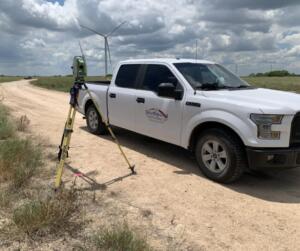Construction projects are all about precision—right from the project planning stage. That is why before developing a plan for any engineering project, civil engineers first need to have access to crucial information about the land, including accurate measurements and specifications. This is where engineering land surveys come in.
Land surveyors can provide civil engineers with the knowledge they need to improve the project’s safety, increase efficiency, ensure regulatory compliance, and complete the project successfully and on time. Keep reading to learn more about engineering surveys and why you need to conduct these surveys before starting your next construction project.
All You Need to Know About Engineering Surveys
What Are Engineering Surveys?
Any infrastructure—be it a healthcare facility or a highway—needs to be compatible with the land it’s being built on. Engineering land surveys provide civil engineers with the data they need to ensure that any structure they construct will be safe and will not negatively affect the environment.
An in-depth understanding of the three-dimensional relationships between different locations, including the distance and angles between critical points and measurements of relative elevations, allows civil engineers to determine whether a particular plan for a public building, bridge, or house is practical and feasible.
It also involves assessing and recording details about a property, like the nature of the land—is it grassy, forested, flat, rocky, or uneven? These surveys also offer insight into the natural features of the property, such as rivers and hills, and provide data on existing human constructions like power lines and pipelines. Engineering surveyors can even create detailed maps of the land if required.
To do this, land surveyors rely on high-precision optical equipment and GPS data from satellites to provide accurate measurements since determining precise spatial relationships and boundary lines are critical to minimizing complications in construction projects.
Engineering surveys usually happen before the start of the construction project, but it is not a one-time thing. Civil engineers require their project to be surveyed repeatedly to ensure it’s safe and meets the appropriate technical standards.
This is why a land surveyor needs to provide engineers with an as-built survey after a project has been completed. It will help determine the accuracy of the measurements from the initial survey and make sure that it matches the various details and positions of the final construction project.
Types of Engineering Surveys
Construction Survey
This type of survey analyzes the layout of buildings, roads, gas mains, power lines, and other infrastructure present around potential construction sites. This data makes it easier to plan construction projects.
Topographic Survey
This survey focuses on the shape and physical features of a specific landscape. Here, engineering surveyors analyze the altitude of different geographical coordinates, and based on this data, they draw contour lines to mark locations with the same elevation. This information can be used to make topographical maps and determine whether the terrain is suitable for future construction projects.
Geological Survey
For this type of survey, land surveyors use satellite data or aerial photographs to map the layout and features of physical landscapes, like rivers, mountains, and valleys.
Deformation Survey
Surveyors document the three-dimensional coordinates of particular sites in this type of survey. After the time has passed, they measure the coordinates again to see if anything has changed. By comparing the two sets of data, the surveyor will be able to determine if a geographical or human-made structure, such as a road, coastline, or mountain, is undergoing changes in shape.
Hydrographic Survey
The processes involved in hydrographic surveys are similar to geological surveys, but it is specifically used to map our coastlines. Accurate hydrographic surveys are necessary to create navigational maps for sailors and Coast Guards, which come in handy for managing coastal resources and conducting marine rescue operations.
Benefits of Engineering Survey
Provides Accurate Data to Plan and Coordinate Your Project
From drafting proposals and pitching your project to earthworks and retaining walls, there is a lot of work involved in any construction project. To carry out this work efficiently and ensure safety, you need accurate data.
Surveying provides engineers with the accurate data they need to create 3D simulations to determine how a structure will affect the environment. If they notice that the construction could possibly cause damage, they will rework their calculations to minimize the damage.
An engineering survey usually includes extensive calculations of quantities and volumes, laying out the full specifications, which include diagrammatic representations to allow you to gain more insight into the project. This can also shed light on all the work needed on the construction site and how many resources you will need to complete the project.
Ensure Safety During High-Risk Projects
The structural integrity and safety of any infrastructure are crucial to determine if they’re meeting its performance needs. This is especially true for high-risk structures such as dams, canals, and bridges.
Land surveyors have the equipment and expertise necessary to assess the safety of a project site without compromising the well-being of the staff. They can even use drones to assess high-risk areas that cannot be safely accessed by people to navigate the complex terrain, gain a bird’s eye view of the property, gather accurate information, and provide more detailed results. This data can be used to create or repair structures, like dams and bridges, to ensure they don’t put the public in danger.
Help Resolve Legal Property Disputes
Land surveyors use robotic total stations with electronic distance measurement devices, drones and Global Positioning Systems (GPS) to conduct boundary surveys and collect accurate information that can establish property lines faster. This is especially handy when there are disputes regarding a project crossing over to another individual’s property. A boundary survey can easily resolve these legal problems and clearly establish whose land the project is being constructed on.
Planning to develop a piece of land can be quite complex. There are a lot of factors you need to consider before starting your construction project. A team of expert land surveyors can help shed more light on your project, ensure you comply with local regulations, and efficiently meet your project’s goals
Contact the land survey specialists at Southpoint Surveying Company in Texas for fast, accurate, and reliable engineering surveying services today.






